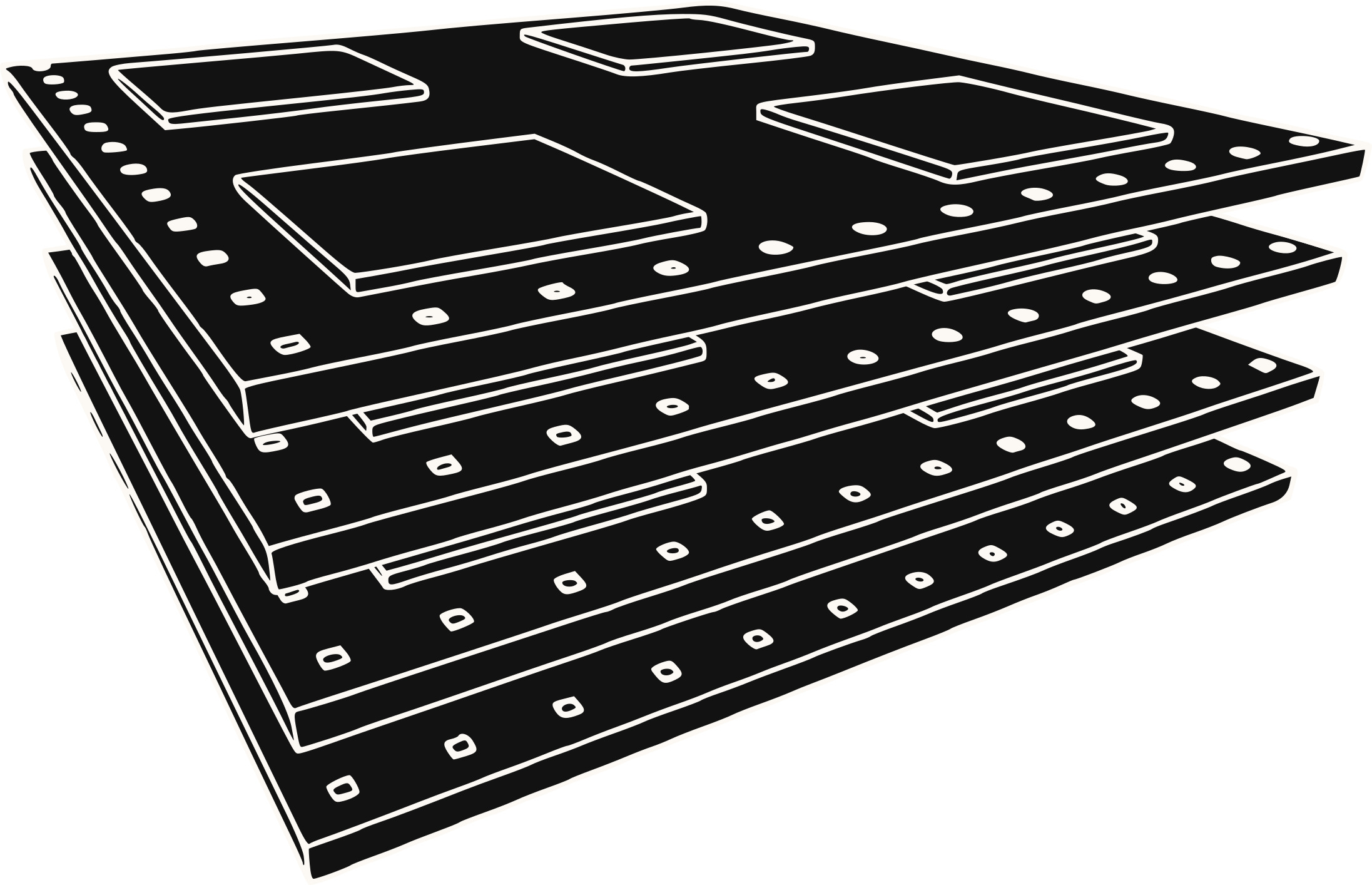A new Germany-based startup, Semron, is developing what it describes as “3D-scaled” chips to run AI models locally on smartphones, earbuds, VR headsets and other mobile devices.
Co-created by Kai-Uwe Demasius and Aron Kirschen, engineering graduates from the Dresden University of Technology, Semron’s chips use electrical fields to perform calculations instead of electrical currents — the medium of conventional processors. This enables the chips to achieve higher energy efficiency while keeping the fabrication costs to produce them down, Kirschen claims.
“Due to an expected shortage in AI compute resources, many companies with a business model that [relies] on access to such capabilities risk their existence — for example, large startups that train their own models,” Kirschen told TechCrunch in an email interview. “The unique features of our technology will enable us to hit the price point of today’s chips for consumer electronics devices even though our chips are capable of running advanced AI, which others are not.”
Semron’s chips — for which Demasius and Kirschen filed an initial patent in 2016, four years before they founded Semron — tap a somewhat unusual component known as a “memcapacitor,” or a capacitor with memory, to run computations. The majority of computer chips are made of transistors, which unlike capacitors can’t store energy; they merely act like “on/off” switches, either letting an electric current through or stopping it.
Semron’s memcapacitors, made out of conventional semiconductor materials, work by exploiting a principle known in chemistry as charge shielding. The memcapacitors control an electric field between a top electrode and bottom electrode via a “shielding layer.” The shielding layer, in turn, is controlled by the chip’s memory, which can store the different “weights” of an AI model. (Weights essentially act like knobs in a model, manipulating and fine-tuning its performance as it trains on and processes data.)
The electric field approach minimizes the movement of electrons at the chip level, reducing energy usage — and heat. Semron aims to leverage the heat-reducing properties of the electric field to place potentially hundreds of layers of memcapacitors on a single chip — greatly increasing compute capacity.

“We use this property as an enabler to deploy several hundred times the compute resources on a fixed silicon area,” Kirschen added. “Think of it like hundreds of chips in one package.”
In a 2021 study published in the journal Nature Electronics, researchers at Semron and the Max Planck Institute of Microstructure Physics successfully trained a computer vision model at energy efficiencies of over 3,500 TOPS/W — 35 to 300 times higher than existing techniques. TOPS/W is a bit of a vague metric, but the takeaway is that memcapacitors can lead to dramatic energy consumption reductions while training AI models.
Now, it’s early days for Semron, which Kirschen says is in the “pre-product” stage and has “negligible” revenue to show for it. Often the toughest part of ramping up a chip startup is mass manufacturing and attaining a meaningful customer base — albeit not necessarily in that order.
Making matters more difficult for Semron is the fact that it has stiff competition in custom chip ventures like Kneron, EnCharge and Tenstorrent, which have collectively raised tens of millions of dollars in venture capital. EnCharge, like Semron, is designing computer chips that use capacitors rather than transistors, but using a different substrate architecture.
Semron, however — which has an 11-person workforce that it’s planning to grow by around 25 people by the end of the year — has managed to attract funding from investors, including Join Capital, SquareOne, OTB Ventures and Onsight Ventures. To date, the startup has raised 10 million euro (~$10.81 million).
Said SquareOne partner Georg Stockinger via email:
“Computing resources will become the ‘oil’ of the 21st century. With infrastructure-hungry large language models conquering the world and Moore’s law reaching the limits of physics, a massive bottleneck in computing resources will shape the years to come. Insufficient access to computing infrastructure will greatly slow down productivity and competitiveness both of companies and entire nation-states. Semron will be a key element in solving this problem by providing a revolutionary new chip that is inherently specialized on computing AI models. It breaks with the traditional transistor-based computing paradigm and reduces costs and energy consumption for a given computing task by at least 20x.”































Comment